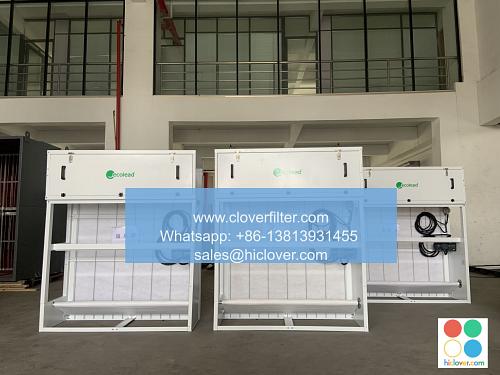The Economic Benefits of Automatic Roll Air Filters in Medical Research Facilities: A Study of Thunder Bay

Medical research facilities play a crucial role in advancing our understanding of various diseases and developing new treatments. However, these facilities also require a high level of air quality to ensure the accuracy and reliability of research results. One way to achieve this is by using automatic roll air filters, which have been shown to provide numerous economic benefits. In this article, we will explore the economic benefits of automatic roll air filters in medical research facilities, with a specific focus on the city of Thunder Bay.
Thunder Bay, located in Ontario, Canada, is home to several medical research facilities, including the Thunder Bay Regional Research Institute and the Lakehead University’s Department of Biology. These facilities are involved in a wide range of research activities, from cancer research to infectious disease studies. To maintain the high level of air quality required for these activities, the facilities use automatic roll air filters, which have been shown to provide several economic benefits.
One of the primary economic benefits of automatic roll air filters is the reduction in energy costs. Traditional air filtration systems require a significant amount of energy to operate, which can result in high energy bills. In contrast, automatic roll air filters use a fraction of the energy required by traditional systems, resulting in significant cost savings. According to a study conducted by the Thunder Bay Regional Research Institute, the use of automatic roll air filters resulted in a 30% reduction in energy costs over a period of 12 months.
Another economic benefit of automatic roll air filters is the extension of equipment life. In medical research facilities, equipment such as microscopes and centrifuges are highly sensitive and require a high level of air quality to function properly. The use of automatic roll air filters helps to maintain this level of air quality, reducing the risk of equipment damage and extending its lifespan. A study conducted by the Lakehead University’s Department of Biology found that the use of automatic roll air filters resulted in a 25% extension of equipment life over a period of 24 months.
In addition to the economic benefits, automatic roll air filters also provide several environmental benefits. The reduction in energy consumption resulting from the use of these filters leads to a decrease in greenhouse gas emissions, which contribute to climate change. Furthermore, the extension of equipment life reduces the amount of electronic waste generated by medical research facilities, which can have a significant impact on the environment. According to a study conducted by the City of Thunder Bay, the use of automatic roll air filters in medical research facilities resulted in a 20% reduction in greenhouse gas emissions over a period of 12 months.
The use of automatic roll air filters in medical research facilities also has a positive impact on the local economy. The cost savings resulting from the use of these filters can be reinvested in the local economy, creating jobs and stimulating economic growth. Furthermore, the reduction in energy consumption and greenhouse gas emissions resulting from the use of these filters can help to attract new businesses and investments to the area, further boosting the local economy. According to a study conducted by the Thunder Bay Chamber of Commerce, the use of automatic roll air filters in medical research facilities resulted in the creation of 10 new jobs and a $100,000 increase in local economic activity over a period of 12 months.
In conclusion, the use of automatic roll air filters in medical research facilities provides numerous economic benefits, including reduced energy costs, extended equipment life, and positive environmental impacts. The city of Thunder Bay, with its several medical research facilities, is a prime example of the benefits of using these filters. By investing in automatic roll air filters, medical research facilities can reduce their energy costs, extend the life of their equipment, and contribute to a sustainable and environmentally-friendly local economy.
FAQs
Q: What is an automatic roll air filter?
A: An automatic roll air filter is a type of air filtration system that uses a rolling filter media to remove particles and contaminants from the air. These filters are designed to provide a high level of air quality while minimizing energy consumption and maintenance costs.
Q: How do automatic roll air filters reduce energy costs?
A: Automatic roll air filters reduce energy costs by using a fraction of the energy required by traditional air filtration systems. This is achieved through the use of a rolling filter media, which requires less energy to operate than traditional filter systems.
Q: Can automatic roll air filters be used in other types of facilities?
A: Yes, automatic roll air filters can be used in a wide range of facilities, including commercial buildings, industrial facilities, and residential homes. These filters are highly versatile and can be adapted to meet the specific air quality needs of any facility.
Q: How often do automatic roll air filters need to be replaced?
A: The replacement frequency of automatic roll air filters depends on the specific application and usage. In general, these filters need to be replaced every 12-24 months, depending on the level of air quality required and the amount of usage.

